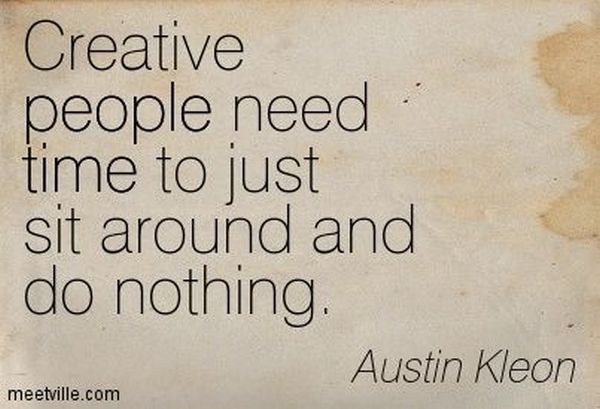I know what to say
6 Solutions To “I Don’t Know What To Say”
Have you ever wondered why you get stuck, thinking “I don’t know what to say!” All the while you see many people who always seem to know what say and have the right words?
This is so annoying, you might think that “I don’t know what to say” is a syndrome. It actually isn’t at all, it’s something entirely normal if your conversation skills aren’t that sharp.
This article will open up 6 new possibilities for you to know what to say. And we’ll do that in key situations where you’re most likely to run out of things to say.
1. When You Don’t Know What To Say To Someone You Just Met
When you meet someone for the first time, you don’t know much about them. You don’t have enough information about who they are, what they do, and what kind of things they like. In the same way, they don’t know very much about you.
This is what makes both of you wonder what you could talk about.
Each time you think of something, you wonder whether or not it’ll be interesting to them. You don’t know what to say to make good conversation.
The solution to this is to do small talk. You start talking about the context you’re in and the occasion or event that made you come together. After that, you talk about other things each of you do in your lives. You start with work, then working out, and any other leisure activities.
The key here is to lower your expectations. Don’t expect the first conversation you have to be spectacularly interesting. It’s just a casual conversation.
You go over a series of topics, one by one, jumping from subject to subject. As you do that, you’ll find that you have things in common, and have some topics both of you love to talk about.
Once you find those special things you both like, you’ll be able to converse freely and as long as you want.
2. When You Don’t Know What To Say To Keep The Conversation Going
As you talk to friends, old or new, you sometimes worry that the topic will run its course soon. You get anxious about not being able to keep the conversation flowing beyond a couple of minutes.
This happens usually when you are having a logical exchange of information. And you start to feel that it’s not a fun or exciting conversation, especially in a social setting where people come to have fun.
A quick solution here is to get in touch with your emotions, instead of your logic. Try and feel the energy in the room, and the sort of emotion you’d like to have as you’re socializing.
You make yourself feel great, first. You smile, you feel the rhythm of the music, and then you can talk.
This unlocks your emotional brain. The part of your brain that can connect with others. When you’re in that emotional state, you can talk about anything. Even the silliest things are okay because the priority is not to exchange information, but rather connect and build friendships.
3. What To Say When Your Mind Goes Blank
If you find yourself in situations where you feel like your mind can’t function enough to make conversation, then understand this: it’s a state of mind and an emotional state.
You get into that state by the way you think, and the way that makes you feel. You should strive not to get into that state in the first place.
The way you can prevent getting there is not to second-guess, criticize, or constantly wonder what others are thinking of you. When you’re socializing, that constant self-doubt is just a waste of energy. It brings you down emotionally and makes you lose your ability to mingle.
What you can do, is whenever those self-doubts and anxiety come up, do something to interrupt them. Move around physically, do something or go somewhere and come back.
Don’t argue with self-doubt, you’ll lose. Instead, interrupt it and distract yourself from it.
In your mind, tell yourself that you’ll worry about it later when you get home. Never analyze yourself as you’re socializing, leave it for after you go back home. This is like procrastinating on feeling anxious.
The good news here is that you don’t have to stop self-doubt all at once.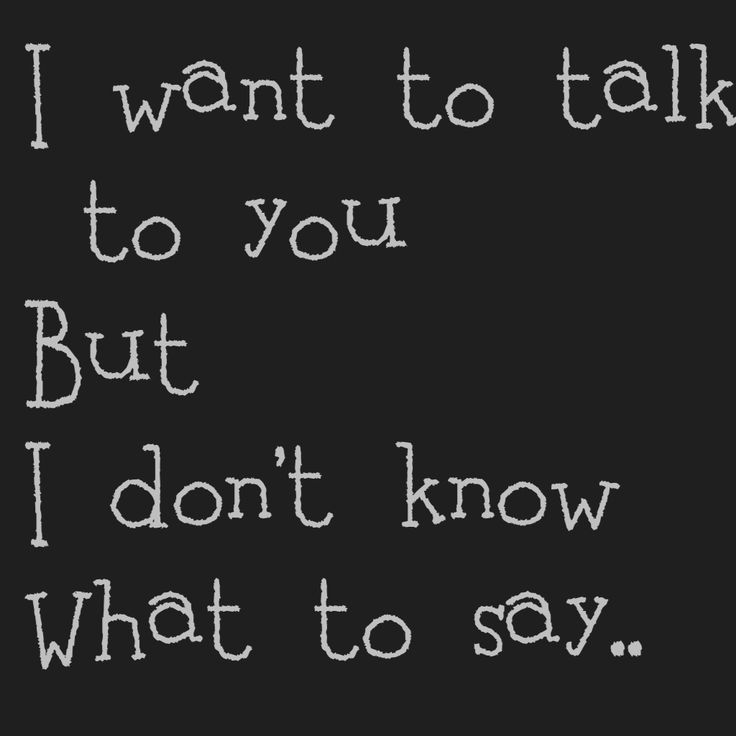 If you can reduce it each time you’re having conversations or socializing, then that’s good enough. Just focus on reducing the self-doubt every time.
If you can reduce it each time you’re having conversations or socializing, then that’s good enough. Just focus on reducing the self-doubt every time.
That way, you’re conversation skills will grow over time and your mind no longer goes blank, not knowing what to say.
4. What To Say When You Have Nothing To Talk About
If you think you’re someone who doesn’t have a lot of things to talk about, then you can definitely change your situation.
One way to start is to notice how every topic is related to many other topics. Take one of your favorite topics. Notice how you can divide it into a set of subtopics. They are like subcategories. Notice how you can take each one, and divide again it into mini categories.
You probably know exactly what to say and what to talk about when it comes to all those subtopics.
They’re all different, and yet, they’re related at the same time. Well, it’s that way with everything else. Every subject has many parts and facets to it that are related to other subjects.
Another way to look at it is to notice how every movie you’ve ever seen reminds you of another that similar in some way.
When you can always go from one topic to another, and find the relationship, then you’ve mastered this skill.
If you’ve never used this principle in conversation, try and practice at home. Think of one topic, then how it relates to another, then how that relates to the next one. Keep practicing until you feel like you can start with any topic and come up with other related things to talk about.
After a little practice at home, try and use that skill in conversation. Try going from one topic to the next as you socialize with people. The amazing thing about this is that you only have to learn it once.
You automatically get better at it as you use it and you start to feel like you’ll always have things to say.
5. What To Say To Make The Conversation More Interesting
There are things you can say to turn a somewhat dull conversation into an interesting one.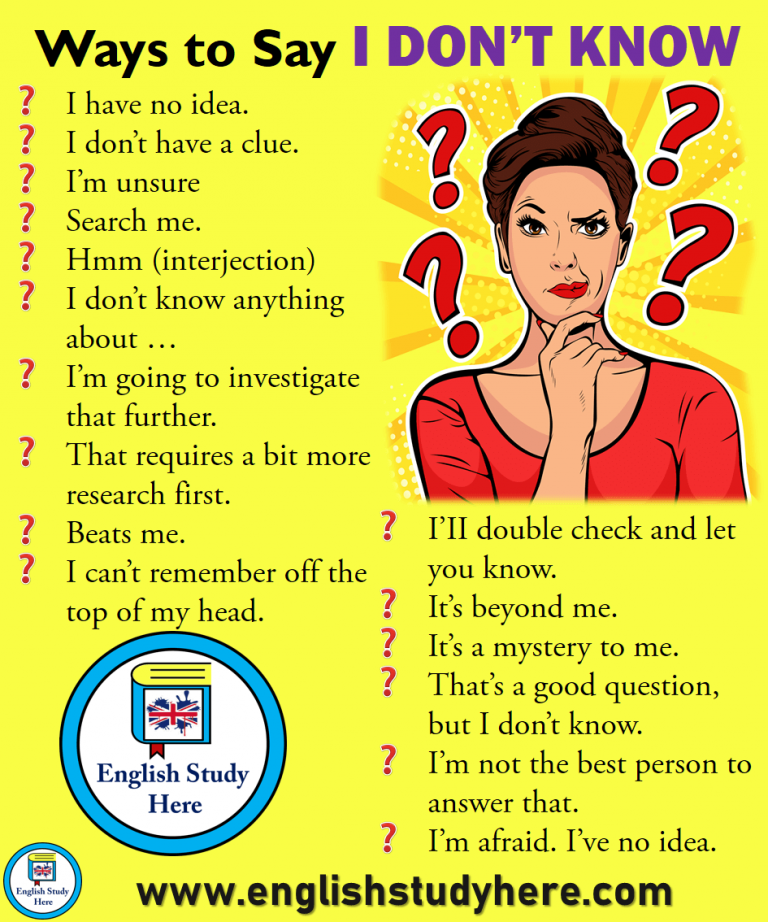 There are topics you can get into and conversational turns that you can use.
There are topics you can get into and conversational turns that you can use.
To make the conversation instantly more interesting, you can go into more personal topics. If you’re with a friend you’re not so close to, maybe it’s time to get to the next level of what you are used to discussing.
Another way to make things interesting is to share a vulnerability, a quirk, or anything about you that is a tiny bit embarrassing. This is something you do half-jokingly, and it shows that you have confidence. It also makes you relatable, because everyone else has little quirks too.
Another quick tip to bring the conversation to an interesting turn is to use the time perspective. What you do is take the topic you’re talking about, and project it either into the past or into the future. Think “How people used to do (…) back in the day?” or “In a few decades, how would we do (…).”
For any topic or activity, the way we used to do it is way different from now, and will probably be very different in the future. Whenever you think about what to say next, consider the future and the past of the topic you were talking about. It might be just what you need to revive the conversation.
Whenever you think about what to say next, consider the future and the past of the topic you were talking about. It might be just what you need to revive the conversation.
6. What To Say To Move Past The Small Talk
As you work on your conversation skills and start to do good small talk, you’ll have a new need. It’s the need to know just what to say to move past the small talk.
At some point, you want to transition to deeper and more meaningful conversations. To do that, you discuss a topic more in detail. You spend more time on it instead of moving on quickly to another one.
You ask more questions, share more of what you know about it, and recall any stories you’ve heard or experienced in that area.
What’s great about small talk is that it’s exactly what reveals to you what you can discuss in detail with the other person. Once you find those very special topics, you can discuss them for several minutes and with passion.
When this happens, you know exactly what to say. Once the other person starts to share more and get deeper into that the conversation is much more enjoyable and meaningful.
Once the other person starts to share more and get deeper into that the conversation is much more enjoyable and meaningful.
For your friendship, this becomes something you can relate on. You both start to realize that you can be closer as friends and spend more time enjoying each other’s company.
With some practice, you can always know what to say. The key is to never let yourself get stuck in an emotional state of self-doubt. Try and shake it off and do whatever you can to feel good. Your feelings influence how you socialize a great deal. This is why it’s a great place to focus on when you don’t know what to say.
Don’t Know What to Say? How to Know What to Talk About
I’ve always been uncomfortable talking to people I don’t know well.
But over the years, I’ve learned exactly what to do whenever I find myself thinking, “I don’t know what to say.”
Advertisements
First of all: If you’re wondering, “Is it normal to have nothing to talk about?” the answer is “YES!” I used to have similar worries, and I believed there was something wrong with me.
It turned out that I simply needed to learn some strategies to deal with those moments when my mind goes blank. You see, social skills aren’t something we’re born with. They’re just that: skills. They can be practiced and improved.
Here are my tricks for how to know what to say, even when you don’t know what to say.
1. Memorize some universal questions
“I don’t know what to do after I say hello. What do I say to open a conversation?”
When you’ve just met someone, you need to make small talk. Think of small talk as a warm-up exercise that paves the way for more interesting discussions later on. But how do you start a conversation?
Advertisements
These are the questions I always have in the back of my head, ready to go whenever I need something to say. (Just knowing they are there as a safety net makes me feel more relaxed.)
Don’t fire them off all at once. Use them when a topic dies out.
The questions:
- “How do you know the other people here?”
- “Where are you from?”
- “What brings you here?”
- “What do you do?”
(See my guide on how to start a conversation for more opening lines and advice on how to have more to say when chatting to new people. )
)
These questions are open, meaning that they encourage the other person to give a more in-depth answer than “Yes” or “No.”
A recommendation
If you want to improve your social skills, self-confidence, and ability to bond, take our 1-minute quiz.
You get 100% free personalized tips based on your results.
Start the quiz
Be careful not to flood the other person with questions. You don’t want to interrogate them. It’s important that you share an equal amount of information about yourself. This leads me to the next tip.
2. Switch between sharing and asking questions
“Why don’t I know what to say after someone replies to my questions? It’s hard for me to keep a conversation flowing without feeling as though I’m interrogating the other person.”
Ever come across someone who constantly asks questions? Annoying.
Or someone who NEVER asks questions? Self-absorbed.
For years, I wondered how to find a balance between talking about myself and asking questions.
Advertisements
We don’t want to constantly ask questions, nor do we want to constantly talk about ourselves. The IFR method is all about finding that balance. Here it is:
Inquire: Ask a sincere question.
Follow up: Ask a follow-up question.
Relate: Share something about yourself that relates to what the other person just said.
Advertisements
You can then repeat the sequence to keep the conversation going.
Here’s an example. The other day, I was talking to someone who turned out to be a filmmaker. Here’s how the conversation went:
Inquire: What kind of documentaries do you make?
She: Right now, I’m doing a movie on bodegas in New York City.
Follow up: Oh, interesting. What’s your takeaway so far?
She: That almost all bodegas seem to have cats!
Relate: Haha, I’ve noticed that. The one next to where I live has a cat who always sits on the counter.
And then I inquired again, repeating the IFR sequence:
Inquire: Are you a cat person?
Try to make the conversation go back and forth like that. The pattern goes like this: they talk a bit about themselves, we talk about ourselves, then we let them talk again, and so on.
Advertisements
Notice that when you use the IFR method, it’s easier to come up with things to say.
- If you find yourself thinking, “I don’t know what to say” after you’ve asked someone a question, follow up on what you just asked.
- If you don’t know what to say after you’ve asked a follow-up question, say something related to what you just asked.
- If you don’t know what to say when you’ve related to someone’s answer, inquire about what you’ve just said.
3. Focus all your attention on the conversation
“I don’t know what to say in conversations because I get so worried about what the other person is thinking of me.
How do you think of something to say when you’re in this situation?”
When therapists work with shy people, people with social anxiety, and others who completely lock up in conversations, they use a technique called Shift of Attentional Focus. They instruct their clients to focus all their attention on the conversation they’re having, rather than thinking about how they come across and what they should say next.[1]
(It’s hard, especially in the beginning, but gets surprisingly easy with some practice.)
Participants who focused on the conversation rather than themselves felt less anxious.[2]
Here’s how to do this in practice:
Say that you ask someone how their week was. They reply, “I went to Paris with my friends last weekend. It was great!”
Advertisements
Here’s what I would have thought before I learned about this method:
“Oh, she’s been to Paris! I’ve never been there. She’ll probably think I’m boring. Should I tell her about that time I went to Thailand? No, that’s stupid. I DON’T KNOW WHAT TO SAY!”
She’ll probably think I’m boring. Should I tell her about that time I went to Thailand? No, that’s stupid. I DON’T KNOW WHAT TO SAY!”
And so on.
But if you use the Shift of Attentional Focus technique, you constantly move your thoughts back to the conversation.
Article continues below.
Take this quiz and see how you can improve your social life
Take this quiz and get a custom report based on your unique personality and goals. Start improving your confidence, your conversation skills, or your ability to bond - in less than an hour.
Start the quiz.
Let’s REALLY focus on what she just said. What questions might we come up with to move the conversation forward?
- What was Paris like?
- How long was she there?
- Is she jet-lagged?
- How many friends did she go with?
You don’t have to fire off all these questions. The idea is to give the other person your full attention and let your natural curiosity come up with things to ask. You can then choose which questions would be most suitable for the conversation.
You can then choose which questions would be most suitable for the conversation.
Advertisements
Reread her reply above and see if you can come up with even more questions.
4. Keep the conversation centered on the other person
Another thing you can do to come up with things to say is to stop trying to come up with conversation topics. I know this sounds weird, so let me show you what I mean.
Of course, if you’re already feeling nervous, it might not be so easy to just “relax and stop worrying about it.” But there’s a trick that you can try.
Advertisements
Shift the conversation over to the other person by asking sincere questions. This keeps the conversations going, and as it moves forward, you can throw in small facts about yourself that you feel comfortable sharing.
For example, if the topic of work comes up, you can ask basic questions like:
Article continues below.
What type of social overthinker are you?
Take this quiz and get a custom report based on your unique personality and goals. Start improving your confidence, your conversation skills, or your ability to bond - in less than an hour.
Start improving your confidence, your conversation skills, or your ability to bond - in less than an hour.
Start the quiz.
- “Is your work stressful?”
- “How well do you like your job?”
- “What exactly do you do at your job?”
- “What do you want to be doing in 5 years?”
- “Is the company good to work for?”
- “Why did you pick that career?”
These Why, What, How questions can be used in a conversation about any topic. Break up the questions by sharing a little bit about yourself every now and then, as I described in the IFR method section.
Here’s our guide for how to have a conversation without asking too many questions.
Advertisements
5. Jump back to a previous topic
“I don’t know how to respond when a conversation starts drying up. It feels really awkward and embarrassing. How do you talk when you have nothing to say?”
One of my favorite methods to know what to say is Conversational Threading.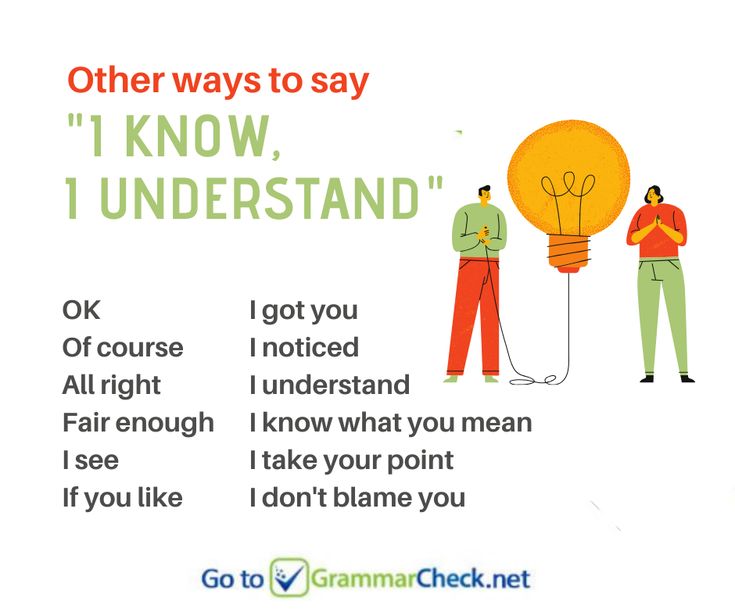 It’s not only helpful for continuing your conversations but also makes them more dynamic.
It’s not only helpful for continuing your conversations but also makes them more dynamic.
In short, Conversational Threading relies on the fact that your interactions don’t have to be linear.
For example, if you’ve exhausted the current topic, you can always jump back to something you’ve talked about earlier.
Advertisements
If your friend mentioned that they saw a movie last weekend, and then the conversation moves on to, say, work, and then the work topic dies out, you can say:
“By the way, you said that you saw a movie last weekend, was it good?”
Here’s a video that explains conversational threading with a real-world conversation:
6. View silence in conversations as something good
Often, I didn’t know what to say because:
- There was a silence in the conversation.
- I panicked and froze up.
- I couldn’t come up with anything to say because I was nervous.
My friend, a coach and behavioral scientist, made me realize something powerful: Silence is not necessarily awkward.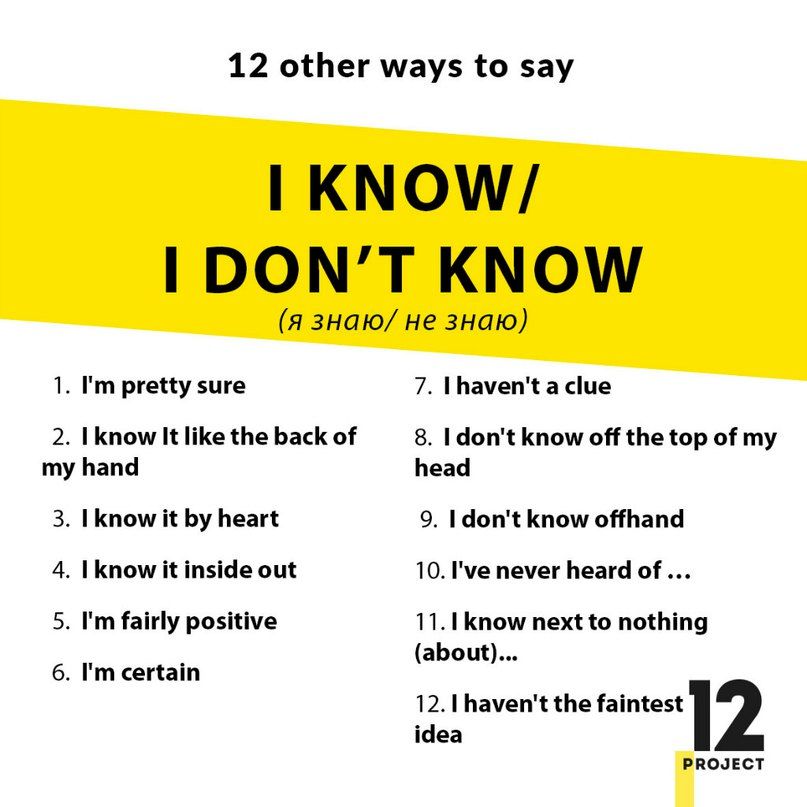
Advertisements
I used to think that periods of silence in a conversation was always my fault and that I had to “fix it” somehow.
In reality, most conversations contain some silences or long pauses. We tend to interpret that silence as a negative sign, but it doesn’t mean the conversation is going badly. Rather than assuming the worst, use the moment to catch your breath and move forward from there.
A silence isn’t awkward until you start stressing out about it.
If you come off as relaxed about silences during a conversation, people around you will follow your lead. When you feel more relaxed, it’s easier to come up with the next thing to say.
Advertisements
Besides, it’s important to know that there can be many reasons for a break in a conversation.
Reasons like:
- The other person is nervous too.
- The conversation would benefit from a silent moment in which you can both breathe before carrying on.
- One of you is having an off day and doesn’t feel like talking much, which is okay!
Remember this: As two people get to know each other, they are more comfortable sharing moments of silence.
Article continues below.
A recommendation
If you want to improve your social skills, self-confidence, and ability to connect with someone, you can take our 1-minute quiz.
You’ll get a 100% free custom report with the areas you need to improve.
Start the quiz.
LESSON LEARNED: Practice being comfortable with silence rather than trying to eliminate it. It takes the pressure off you and makes knowing what to say easier.
7. Challenge your inner critical voice
“I’m quiet because I don’t know what to say. It feels like everyone else is so much more socially skilled than me.”
Being a self-conscious introvert, I would often exaggerate and overdramatize social situations in my head.
Advertisements
I’d feel like people were judging me for “failing at having a good conversation” whenever I’d say something “stupid.” Sure, people do judge us based on what we say, as well as how we say it. But they probably don’t judge us half as harshly as we judge ourselves.
So don’t get stuck thinking about that one wrong thing you’ve said five minutes ago because even if the other person did notice it, they probably didn’t think anything of it.
Advertisements
In reality, most of our blunders go by completely unnoticed by others because they are often just as nervous and worried as we are about how they come across.
Changing your self-talk can make you more confident and believe more in yourself.
People who went through training aimed at changing the way they talked to themselves started believing more in themselves.[3]
Practice being realistic by doing the following:
- Every day, remind yourself that everyone gets nervous. We all have moments when our negative thoughts take over, like “Argh, I can’t talk to people!” or “Why do I feel like I have nothing to say?”
- Remind yourself that people care as little about your hiccups as you care about theirs.
- Remember that just because you think that people will judge you negatively doesn’t mean that they will.

- Realize that if you are naturally quiet, that’s fine. Being quiet is a normal personality trait, and there’s no need to force yourself to be more outgoing. However, if you want to learn how to be more talkative, read this guide on how to stop being quiet.
Identifying and challenging your inner critical voice can be really tricky on your own. Many therapists are experts at helping you identify and overcome your inner critic.
We recommend BetterHelp for online therapy, since they offer unlimited messaging and a weekly session, and are cheaper than going to a therapist's office.
Advertisements
Their plans start at $64 per week. If you use this link, you get 20% off your first month at BetterHelp + a $50 coupon valid for any SocialSelf course: Click here to learn more about BetterHelp.
(To receive your $50 SocialSelf coupon, sign up with our link. Then, email BetterHelp’s order confirmation to us to receive your personal code. You can use this code for any of our courses. )
)
8. Know that it’s OK to make obvious statements
If you’ve ever wondered, “How do you hold a good conversation?” you might have thought, “By making other people think I’m really fascinating and witty!” But when I made friends with socially skilled people, they taught me something fundamental about what to say:
Advertisements
What you say doesn’t need to be thoughtful, interesting, or make you appear smart.
Why?
When people hang out with you, they usually want to have a good time. They want to relax and enjoy themselves. People DON’T want a constant stream of thought-provoking clever remarks. If you attempt to sound smart all the time, they may think you are a try-hard or simply annoying.
Article continues below.
Break free from social awkwardness
Learn how to stop being awkward in our free training. Take our quiz to get started.
Start the quiz.
Often, small talk is just fine. Have you EVER judged someone for saying something too simple? I’m guessing not.![]() So why would anyone judge you?
So why would anyone judge you?
Stop trying to say smart things all the time. (You can say smart things when they naturally pop into your head, but you don’t need to force them.)
Advertisements
My friend Andreas, for example, is great in social settings. He’s also a member of Mensa with an IQ of 145. When he talks to people, he says things like:
- “I love the weather right now.”
- “Look at the tree over there, it’s so nice.”
- “That car looks cool!”
He doesn’t come off as smart for saying smart things, but for being socially savvy.
LESSON LEARNED: When you stop trying to say smart things, it’s easier to know what to say because you take the pressure off yourself. Say what you want to say, and don’t filter yourself too much.
Advertisements
9. Comment on something around you
If you want to know how to always have something to talk about, simply look around you!
Looking around my workplace right now, I can see a bunch of stuff that could inspire statements, which in turn could start a conversation.
For example:
- “I like those plants.”
- “This is nice music. What band is it?”
- “I like that painting.”
Here’s an exercise you can do right now: Look around you. What can you see? What kind of statements could you make to get a conversation started?
Advertisements
10. Ask follow-up questions
Dare to dig deeper into topics you find interesting. Don’t be afraid to move beyond surface-level questions. (Make sure you share something about yourself in between the questions so that the other person doesn’t think you’re a spy.)
How do you know when to dig in? By listening carefully!
Here are some signs you should go beyond surface-level questions and dig more deeply:
- The other person keeps subtly steering the conversation back to the topic.
- You feel a genuine desire to learn more about the topic.
- You know that asking questions about the topic would lead to a conversation that involves sharing feelings or opinions.

Let’s say that someone told you that they work as a golf trainer.
You can dig deeper by asking:
- “What’s it like to work as a golf trainer?”
- “What type of clients do you have?”
- “What made you decide to be a golf trainer in the first place?”
Naturally, you would take a break between questions to share something about yourself.
Digging deeper also helps you uncover commonalities. Talking about what you have in common will make the conversation more enjoyable for both of you.
Advertisements
11. Give simple, sincere responses when someone shares a sad story or upsetting news
No guide can tell you how to always know what to say in every type of difficult conversation.
However, it helps to stay calm, show empathy, listen carefully, and offer emotional support if it’s appropriate.
Article continues below.
Double your social confidence in 5 minutes
If you want to improve your social skills, self-confidence, and ability to connect with someone, you can take our 1-minute quiz.
You’ll get a 100% free custom report with the areas you need to improve.
Start the quiz.
For example, if someone tells you that a close relative has died, you could say:
- “It sounds like you’ve been through a terrible time.”
- “I’m so sorry. It’s really hard to lose a loved one.”
If you know the other person well, you can add, “I’m here to listen if you want to talk.”
Advertisements
Make sure your body language matches your words. Maintaining eye contact, nodding slightly, and speaking in a steady tone of voice signals that you care about the other person.
Do not make trivializing comments like “Everything happens for a reason,” because you will come across as insensitive.
It’s OK to say, “I just need a moment to process that” if their news is particularly shocking.
Advertisements
12. Remember “F.O.R.D.” when you run out of things to say
F.O.R.D. stands for:
- Family
- Occupation
- Recreation
- Dreams
This acronym is useful because these topics are relevant to everyone. Even if someone doesn’t have a job or hobbies, you can ask them what they’d like to do.
Even if someone doesn’t have a job or hobbies, you can ask them what they’d like to do.
You can start with a couple of simple, fact-based questions and then dig deeper to learn more about the person you’re talking to.
For example:
- “What do you do for a living?” is a surface-level “Occupation” question.
- “What’s your favorite part of your job?” is slightly more meaningful and encourages them to provide more details.
- “It sounds like you’ve had a great career so far. Is it everything you hoped it would be?” is much more personal and could move the conversation to a discussion about hopes and dreams.
13. Do some background research before going to a social event
Thinking of questions and conversation topics in advance of a social occasion can make it much easier to know what to say.
Advertisements
For example, let’s say that you have a friend who works for an architecture firm.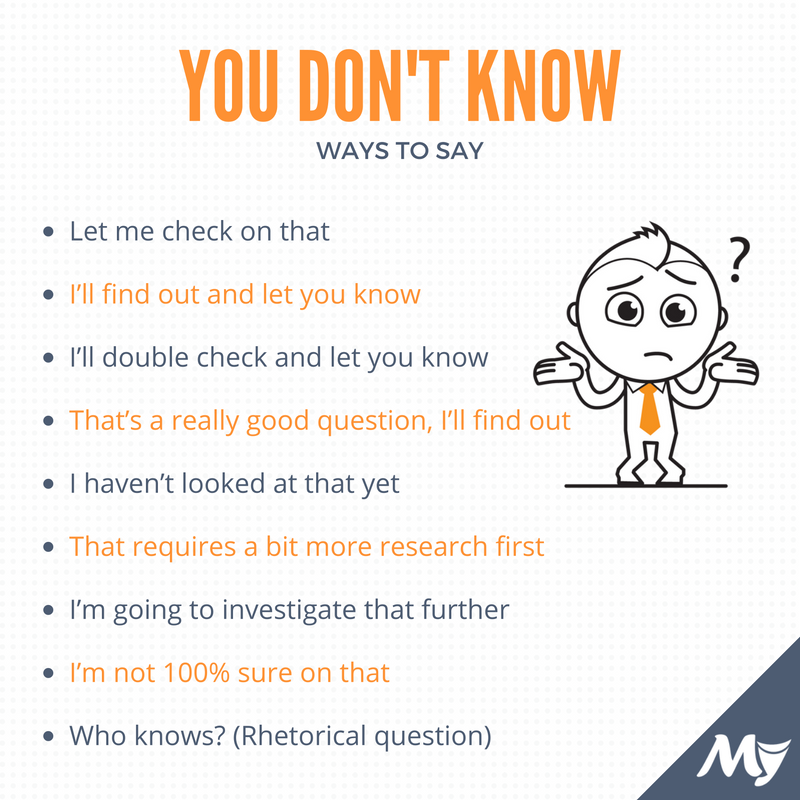 They have invited you to dinner, along with two of their architect colleagues who you have never met before.
They have invited you to dinner, along with two of their architect colleagues who you have never met before.
It’s very likely that these two people will be happy to talk about design, architecture, buildings, and art in general. With this in mind, you could prepare questions like:
- “Who’s your biggest design inspiration?”
- “What city do you think has the best architecture?”
- “I’m taking a trip to Italy next year. Which buildings should I make time to see?”
Memorizing a few questions can make the conversation a lot smoother.
14. Try the echo technique when a conversation starts to flag and you don’t know what to say
Even if someone is giving you very short, minimal answers, there’s a quick trick you can use to keep the conversation alive.
Article continues below.
Double your social confidence in 5 minutes
If you want to improve your social skills, self-confidence, and ability to connect with someone, you can take our 1-minute quiz.
You’ll get a 100% free custom report with the areas you need to improve.
Start the quiz
Advertisements
Try this: Simply repeat the last part of their response using an inquisitive tone of voice.
Advertisement
Consider online therapy
Online therapy allows you to speak to a licensed therapist in the comfort of your home.
BetterHelp offers support via phone or video at $64 per week.
Use the link below to get 20% off your first month at BetterHelp + a $50 coupon valid for any SocialSelf course. To receive your $50 SocialSelf coupon, sign up for BetterHelp using the link below. Email the order confirmation to SocialSelf to get your unique coupon code.
Click here to learn more
Example:
You: “What was the best part of your vacation?”
Them: “Probably when I went scuba diving.”
You: “Cool. Do you go diving a lot, or was it a new experience?”
Them: “It was kind of a new experience, but also not. ”
”
You [Echoing]: “Also not?”
Them: “Yeah well, I mean I did try diving once a long time ago, but it hardly counted because I only spent 10 minutes in the water. What happened was…”
The great thing about this method is that you don’t even have to think of a new question. They have already given you every word you need. However, don’t use this trick too often, or you will come off as annoying.
Show references +
Advertisements
References
- Hazen, R. A., Vasey, M. W., & Schmidt, N. B. (2009). Attentional retraining: A randomized clinical trial for pathological worry. Journal of Psychiatric Research, 43(6), 627–633.
- Zou, J. B., Hudson, J. L., & Rapee, R. M. (2007). The effect of attentional focus on social anxiety. Behaviour Research and Therapy, 45(10), 2326–2333. doi:10.1016/j.brat.2007.03.014
- Cooper, K. M., Hendrix, T., Stephens, M. D., Cala, J.
 M., Mahrer, K., Krieg, A., … Brownell, S. E. (2018). To be funny or not to be funny: Gender differences in student perceptions of instructor humor in college science courses. PLOS ONE, 13(8), e0201258. doi:10.1371/journal.pone.0201258
M., Mahrer, K., Krieg, A., … Brownell, S. E. (2018). To be funny or not to be funny: Gender differences in student perceptions of instructor humor in college science courses. PLOS ONE, 13(8), e0201258. doi:10.1371/journal.pone.0201258
Free training: Conversation skills for overthinkers
- Use "conversational threading" to avoid awkward silence
- Learn a proven technique to get past empty small talk
- Improve socially without doing weird out-of-your-comfort-zone stunts.
- Instantly beat self-consciousness with the "OFC-method"
- See how you can go "from boring to bonding" in less than 7 words.
Start my free training
Read online "I always know what to say. Training book on successful negotiations" - Ryzov Igor Romanovich - RuLit
Igor Ryzov
I always know what to say. Successful Negotiation Training Book
© Text. Ryzov I. R., 2015
Ryzov I. R., 2015
© LLC Eksmo Publishing House, 2015
* * *
IGOR RYZOV - negotiation expert, business coach. Part of Jim Camp's team of effective negotiators. Experience in teaching business technologies since 2006. Conducts open and corporate trainings "Tough negotiations".
ryzov.ru
This is not a textbook, this is a detective novel. The tips and tricks in this book will help you emerge victorious from negotiations, and most importantly, remain a friend to the other side and build long-term relationships.
DMITRY PERUNOV,
Head of Marketing Coral Travel
The book is valuable for its philosophy of negotiation. The most important principle, to which I myself have been going for a long time, is “negotiations never end.” No less relevant is another – the ability to say “no” and leave. A nice bonus will be examples from diplomatic practice - accurate, vivid, reminiscent that Russia is not learning from scratch and we have someone to take an example from.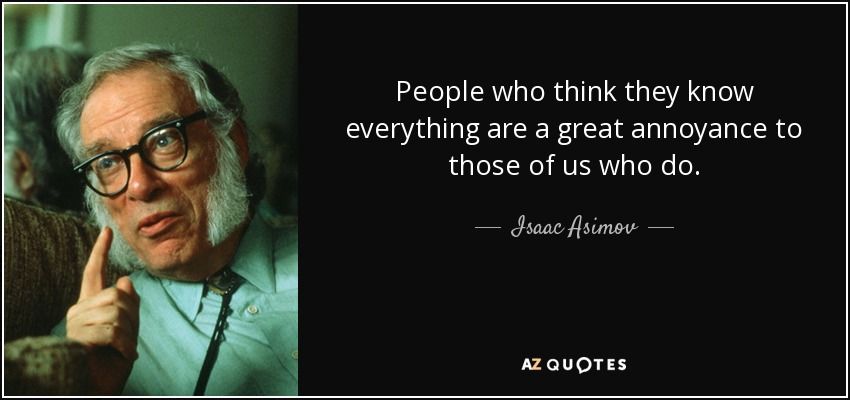
ALEXANDER SADOVSKII,
head of Yandex search services
A brilliant example of how you can tell interesting stories about a subject about which thousands of books have been written over hundreds of years. Fascinating, full of relevant examples and lyrical digressions, and at the same time rich in an arsenal of techniques and tools, this book should be on the shelf not only of every negotiator, but of everyone whose profession is to teach effective communication.
RADISLAV GANDAPAS,
business coach
From the author
What prevents you from 100% fulfilling your plans? Obviously, it depends on the situation. Every time a person wants to accomplish something, he (if a practical person) first thinks: what will have to be overcome? And often comes to the conclusion that the list of obstacles is almost endless.
And what prevents negotiators, sometimes even very experienced ones, from achieving their goals? Inflexibility of views, unwillingness to compromise, personal ambitions. .. Yes, and the list goes on and on.
.. Yes, and the list goes on and on.
I get asked these questions very often in training. I answer, each time considering the specific situation. However, over the years I have seen that it makes sense to generalize the answers. As a result, this book was born, which does not just provide answers. My ambition was to write a tutorial on one of the most difficult disciplines in business training: the negotiator's handbook. These pages contain exercises that will help you not only learn about the various techniques for conducting successful negotiations, but also immediately practice. The book will become your personal negotiating tool, your arsenal of "fighting techniques."
When I say "you", I mean, first of all, those who have discovered negotiation both as a science and as a real art. The book will be useful to those who want to prepare in advance for negotiations, calculate all possible steps and options for the development of events. And it is not just words. Studying at seminars and trainings, including at the Camp Negotiation Institute (USA), I have always strived to bring all the most valuable things to life. All thoughts stated on these pages are passed by me through the prism of personal perception, experience, consciousness. All examples given are from personal experience. All recommendations and advice have long been worked out in practice, and their benefits have been carefully analyzed. By whom and when?
Studying at seminars and trainings, including at the Camp Negotiation Institute (USA), I have always strived to bring all the most valuable things to life. All thoughts stated on these pages are passed by me through the prism of personal perception, experience, consciousness. All examples given are from personal experience. All recommendations and advice have long been worked out in practice, and their benefits have been carefully analyzed. By whom and when?
May the reader forgive the seeming indiscretion, but the answer will be - me. A person who has over 17 years of experience in sales and procurement. A man who had to conduct complex - and often, at first glance, futile - business negotiations for almost half of his 16-hour work time.
However, perhaps the reader has already come across my first book, Tough Negotiations? Or he heard about it from friends-acquaintances. I hasten to “disappoint” those who have not read it: the title of my first book does not mean at all that negotiation techniques are associated with rudeness or excessive pressure. Just the opposite!
Just the opposite!
I agree, these days we often come across "cattle", "boots", "tanks", "kings" and similar characters, with whom, however, we have to deal. The negotiating style of such “persons” sometimes, if not discouraging and confusing, then at least causes difficulties in obtaining the desired result.
In this book, I will introduce you to the special techniques of tough negotiations, used, among other things, by the special services. The book will allow you to learn the basic strategies for interception, retention and management in difficult negotiation situations. And also - to work out and put into practice skills that allow you to control the course of tough negotiations. Be sure to work out - that's why I give so many exercises. After all, negotiations are, first of all, practice! Good luck!
Igor Ryzov ★ I always know what to say. Book-training on successful negotiations read a book online for free
Here you can read online “Igor Ryzov: I always know what to say. Successful Negotiation Training Book” is an introductory excerpt of the e-book, and after reading the excerpt, buy the full version. In some cases, there is a summary. City: Moscow, year of issue: 2015, ISBN: 978-5-699-82756-5, publisher: Eksmo, category: popular_business / psy_personal / psy_personal / in Russian. Description of the work, (foreword) as well as visitor reviews are available on the portal. The Lib Cat library - LibCat.ru was created for those who like to look through a good book and offers a wide range of genres:
Successful Negotiation Training Book” is an introductory excerpt of the e-book, and after reading the excerpt, buy the full version. In some cases, there is a summary. City: Moscow, year of issue: 2015, ISBN: 978-5-699-82756-5, publisher: Eksmo, category: popular_business / psy_personal / psy_personal / in Russian. Description of the work, (foreword) as well as visitor reviews are available on the portal. The Lib Cat library - LibCat.ru was created for those who like to look through a good book and offers a wide range of genres:
romance novels science fiction and fantasy Adventure detectives and thrillers erotica documentaries scientific humorous jokes about business prose children's fairy tales about religion novelties Orthodox vintage about computers programming in English home economics poetry
By choosing a category to your liking, you can find really worthwhile books and enjoy immersion in the world of imagination, feel the experiences of the characters or learn something new for yourself, make an inner discovery. Detailed information for review on the current request is presented below:
Detailed information for review on the current request is presented below:
- Description
- Other books by the author
- Copyright holders
- Similar books
I always know what to say. Successful Negotiation Training Book: Summary, Description and Abstract
We suggest reading an annotation, description, summary or preface (depending on what the author of the book “I always know what to say. A successful negotiation training book” wrote). If you did not find the necessary information about the book - write in the comments, we will try to find it.
In front of you is an interactive negotiation training book. It is based on a strong theoretical base, which is perfectly complemented by bright, lively examples and exercises. The book is structured in such a way that immediately after completing the task, you can get feedback from the author with valuable comments and remarks. With its help, you will learn the basic strategies for intercepting, holding and managing attention in difficult negotiation situations, as well as practice skills that allow you to control the flow of any, even tough negotiations. "I always know what to say" will become your negotiating tool, your personal arsenal of "fighting techniques."
"I always know what to say" will become your negotiating tool, your personal arsenal of "fighting techniques."
Igor Ryzov: other books by the author
Who wrote I always know what to say. A training book for successful negotiation? Find out the last name, the name of the author of the book and a list of all his works by series.
Dear copyright holders!
This book is published on our website as an affiliate program of Litres (litres.ru) and contains only an introductory passage. If you are against its placement, please send your complaint to [email protected] or fill out the feedback form.
I always know what to say. Successful Negotiation Training Book - read online introductory passage
Below is the text of the book, divided into pages. The system of saving the place of the last read page allows you to conveniently read online for free the book “I always know what to say. A Training Book on Successful Negotiations, without having to re-look for where you left off each time. Put a bookmark, and you can at any time go to the page where you finished reading.
Put a bookmark, and you can at any time go to the page where you finished reading.
Font:
↓
↑
GEORGIAGEORGIATAHOMAARIALVERDANAMBOL
Interval:
↓
↑
Make
1234567 ... 108
. Training book on successful negotiations
© Text. Ryzov I. R., 2015
© Eksmo Publishing Company, 2015
* * *
IGOR RYZOV – negotiation expert, business coach. Part of Jim Camp's team of effective negotiators. Experience in teaching business technologies since 2006. Conducts open and corporate trainings "Tough negotiations".
ryzov.ru
This is not a textbook, this is a detective novel. The tips and tricks in this book will help you emerge victorious from negotiations, and most importantly, remain a friend to the other side and build long-term relationships.
DMITRY PERUNOV, Head of Marketing Coral Travel
The book is valuable for its negotiating philosophy. The most important principle, to which I myself have been going for a long time, is “negotiations never end.” No less relevant is another – the ability to say “no” and leave. A nice bonus will be examples from diplomatic practice - accurate, vivid, reminiscent that Russia is not learning from scratch and we have someone to take an example from.
The most important principle, to which I myself have been going for a long time, is “negotiations never end.” No less relevant is another – the ability to say “no” and leave. A nice bonus will be examples from diplomatic practice - accurate, vivid, reminiscent that Russia is not learning from scratch and we have someone to take an example from.
ALEXANDER SADOVSKII, head of search services at Yandex
A brilliant example of how you can tell in an interesting way about a subject about which thousands of books have been written over hundreds of years. Fascinating, full of relevant examples and lyrical digressions, and at the same time rich in an arsenal of techniques and tools, this book should be on the shelf not only of every negotiator, but of everyone whose profession is to teach effective communication.
RADISLAV GANDAPAS, business coach
From the author
Obviously, it depends on the situation. Every time a person wants to accomplish something, he (if a practical person) first thinks: what will have to be overcome? And often comes to the conclusion that the list of obstacles is almost endless.
Every time a person wants to accomplish something, he (if a practical person) first thinks: what will have to be overcome? And often comes to the conclusion that the list of obstacles is almost endless.
And what prevents negotiators, sometimes even very experienced ones, from achieving their goals? Inflexibility of views, unwillingness to compromise, personal ambitions... Yes, and the list goes on and on.
I get asked this question very often during trainings. I answer, each time considering the specific situation. However, over the years I have seen that it makes sense to generalize the answers. As a result, this book was born, which does not just provide answers. My ambition was to write a tutorial on one of the most difficult disciplines in business training: the negotiator's handbook. These pages contain exercises that will help you not only learn about the various techniques for conducting successful negotiations, but also immediately practice. The book will become your personal negotiating tool, your arsenal of "fighting techniques. "
"
When I say “you,” I mean, first of all, those who have discovered negotiation both as a science and as a real art. The book will be useful to those who want to prepare in advance for negotiations, calculate all possible steps and options for the development of events. And it is not just words. Studying at seminars and trainings, including at the Camp Negotiation Institute (USA), I have always strived to bring all the most valuable things to life. All thoughts stated on these pages are passed by me through the prism of personal perception, experience, consciousness. All examples given are from personal experience. All recommendations and advice have long been worked out in practice, and their benefits have been carefully analyzed. By whom and when?
May the reader forgive the seeming indiscretion, but the answer will be - me. A person who has over 17 years of experience in sales and procurement. A man who had to conduct complex - and often, at first glance, futile - business negotiations for almost half of his 16-hour work time.
However, perhaps the reader has already come across my first book, Tough Negotiations? Or he heard about it from friends-acquaintances. I hasten to “disappoint” those who have not read it: the title of my first book does not mean at all that negotiation techniques are associated with rudeness or excessive pressure. Just the opposite!
I agree, these days we often come across "cattle", "louts", "tanks", "kings" and similar characters, with whom, however, we have to deal. The negotiating style of such “persons” sometimes, if not discouraging and confusing, then at least causes difficulties in obtaining the desired result.
Read more
1234567...108
Font:
↓
↑
GeorgiaGeorgiaTahomaArialVerdanaSymbol
03
↓
↑
Bookmark:
Make
Similar books to “I always know what to say. Book-training on successful negotiations»
We present to your attention similar books to «I always know what to say.








